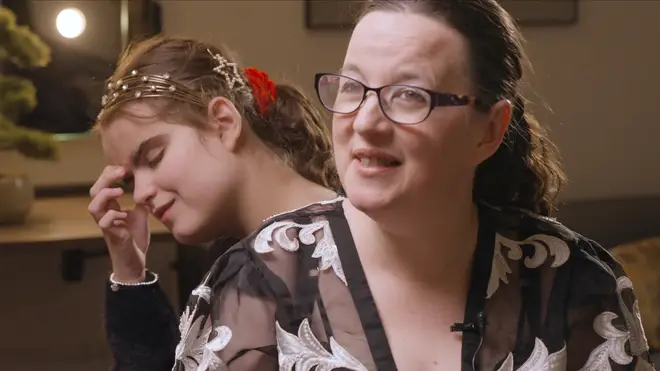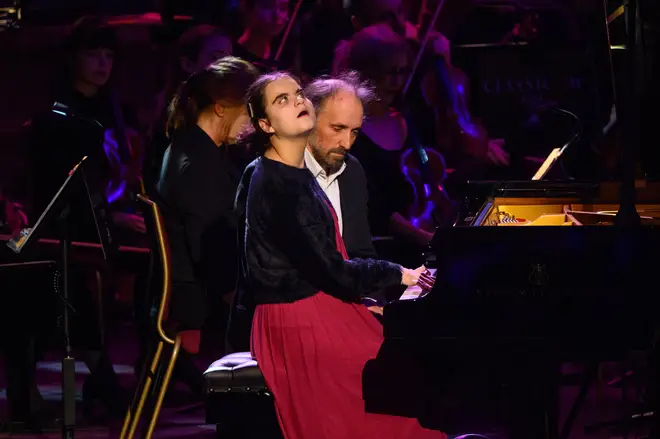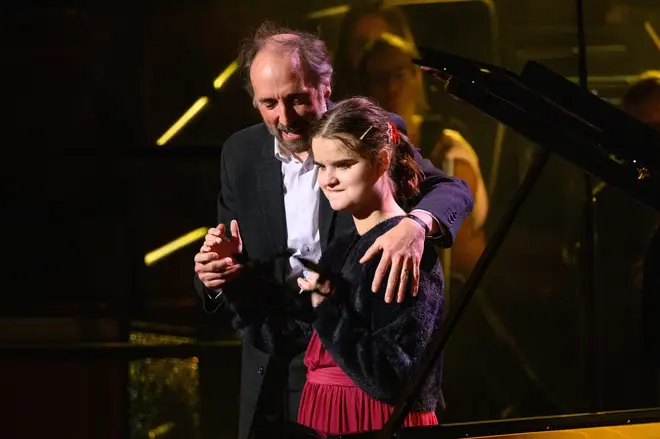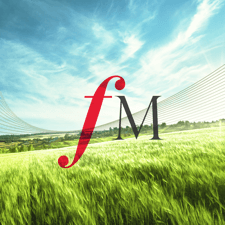Exclusive
‘Music is vital to her’ – how neurodivergent The Piano star Lucy speaks through the piano
12 April 2024, 12:29 | Updated: 17 April 2024, 16:46

Who is Lucy, winner of 'The Piano'? Meet her mum and teacher | Classic FM
Before she took to the stage for a highly-anticipated Royal Albert Hall debut, Lucy’s mum and piano teacher spoke to us about the young musician’s uniquely moving relationship with music.
Listen to this article
Loading audio...
Lucy is the exceptionally talented blind and neurodivergent pianist, who stunned TV audiences in their millions when she appeared on Channel 4’s new programme The Piano, all about celebrating music-making in one of the most accessible venues: train stations.
At age 13, Lucy sat down at the piano at Leeds station, and flowing elegantly from her fingers came a note-perfect rendition of Chopin’s Nocturne in B flat minor, leaving judge Lang Lang in awe, asking, “How does she do that?”.
Months later, Lucy went on to play at the King’s Coronation Concert, and in the autumn, she made her debut at the Royal Albert Hall for Classic FM Live. Before that performance, we met Lucy’s mum, Candice, and piano teacher Daniel Bath, backstage at the hall to find out exactly “how she does it”.
‘Lucy first started responding to music aged two’
Lucy’s mum Candice says her daughter first started responding to music at around two years old.
“It was on her musical toys – it wasn’t like she went straight into a musical instrument,” Candice recalls. “It was more, you press something, and it makes a sound. But she wasn’t pressing it for the sound – she was making rhythm.
“I knew that there was something there before, from when she was little, so we started her in nursery school.”
When Lucy started at primary school, Candice remembers teachers asking, “So what is Lucy like?”. To which she replied: “Music! She likes music.”
“So then,” she adds, “It was about finding a teacher. But it had to be the right person that could work with her, so that was very difficult.”
Read more: Blind pianist Lucy stuns Royal Albert Hall with breathtaking Debussy debut

‘Lucy can do things even professional musicians can’t’
Her teacher is Daniel Bath, who works with the charity The Amber Trust, providing music lessons, equipment and other musical activities like concert tickets, for blind and partially sighted children.
Daniel, who also teaches music at Highbury Primary School, appeared next to the young pianist throughout the Channel 4 competition, helping her to the piano.
Lucy was four when Daniel met her. Even at that age, her teacher said, she already had an incredible depth of musical understanding.
“She could do all sorts of musical things, which even professional musicians always strive to try and do,” Daniel says. “She just had that great understanding of music.
“From that point, it’s been a journey of drawing out those skills, into what she does with the fingers on the piano – developing her piano technique so that she can realise on the piano all the ideas that are in her mind, all the music that she’s learned, that she’s heard, that she’s absorbed, that she’s creating in her mind all the time.”
For Lucy, Daniel says, music is more than just about playing a musical instrument.
“For Lucy, music – piano playing, especially – is a primary means of communication. That’s how she expresses how she’s feeling, expresses what she wants to say to the world, and it’s the same for a lot of children with additional needs and learning difficulties.
“Music is so vital for Lucy. It’s much more than just a career or an interest or a hobby. It’s everything to Lucy.”

‘People can sense something of real beauty in what she does’
Since appearing on The Piano, Lucy has played for royalty, and to audiences of millions. She is also set to star in her own Channel 4 documentary The Incredibly Talented Lucy later this year.
Appearing on the TV show was a “really positive experience” for Lucy, Daniel adds.
“It was very nicely done, and there was such a good atmosphere about it. It’s just a great celebration of the piano as the way that people express themselves and people from all different walks of life.”
The Piano was Channel 4’s best-rating new format since 2017, and a huge success for the TV network with an average of 2.7 million viewers per episode. It returned for a Christmas special, and two new series are currently being filmed.
“Of course for Lucy,” Daniel adds, “It was a great way for her to share her gift and her love of music with everyone else, and to be a role model for other children and other families who have the same sort of barriers that Lucy faces and to show that you can overcome these barriers and that doesn’t need to stop you from expressing yourself and taking your place amongst all the other musicians.”

So what’s the secret to Lucy’s impressive pianism? “Practice!” Daniel says, like any good teacher would.
“It's just really, really hard work,” he says. “She works hard, like any other musician does to get to that level. She just practises a lot, and she loves playing.
“Also, I think the way that Lucy plays, beyond the sort of technical accomplishment that she is developing all the time, it’s that direct communication – people can sense that she is a genuine natural musician and that when she plays for you, she’s telling you something.
“And that’s what makes audiences stop and listen, you know, because they can sense something of real beauty and genuine expression in what she does.”
In any pupil-teacher relationship, the learning experience goes both ways. But what has Lucy taught Daniel, in the decade they have been playing together?
“Lucy has taught me that music is so vital for everybody. She has taught me that you have to make opportunities in music available to everybody because for so long, opportunities have been limited to very few people – people who can afford a music education or who have the cultural capital to engage in classical music.”
For Daniel, it’s about giving “someone like Lucy” the opportunity to show what they can do, and to flourish into great musicians and communicators.









































